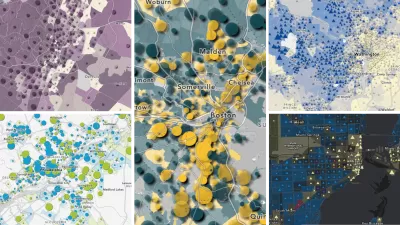Recently Congress voted in favor of a GOP measure to scrap the American Community Survey, on the basis of its alleged intrusiveness. Now a backlash is growing in defense of the survey, even among some conservatives, reports Matthew Yglesias.
The American Community Survey is a supplement to the Censis and gathers data on such aspects of society as commuting habits and water consumption. However, just as is the case in Canada, where the Conservative government switched to a voluntary census, arguing that it was intrusive and punitive, House Republicans successfully fought to kill the ACS. However, across the ideological spectrum, supporters of the survey are rising to its defense:
"The [American Community Survey] is an invaluable source of data for policy analysts of all ideological stripes, for state and local governments, and for private businesses. The very conservative Wall Street Journal editorial page noted the ACS's importance for both business and public policy and accused the GOP of trying to 'kill data that helps economic growth' in a move they said 'does something that feeds the otherwise false narrative of political extremism.' Target made a video in partnership with the Census Bureau lauding the ACS, and Andrew Biggs of the conservative American Enterprise Institute explained in congressional testimony that the fine-grained data in the ACS let him 'better control for the different skills of public and private sector employees' in some of his reports arguing that government workers should be paid less.
These conservative defenders of the ACS are quite right. Accurate information, posted on the Internet in conveniently accessible form, is the ultimate 'public good': hugely valuable to society, but underproduced by the private sector. Private firms produce information, of course, but are incentivized to do so on a proprietary basis-restricting access in pursuit of maximum profits. The public interest is well-served when information circulates as widely as possible, which makes it an ideal service to be performed by the state."
FULL STORY: Conservatives for Ignorance

Planetizen Federal Action Tracker
A weekly monitor of how Trump’s orders and actions are impacting planners and planning in America.

Map: Where Senate Republicans Want to Sell Your Public Lands
For public land advocates, the Senate Republicans’ proposal to sell millions of acres of public land in the West is “the biggest fight of their careers.”

Restaurant Patios Were a Pandemic Win — Why Were They so Hard to Keep?
Social distancing requirements and changes in travel patterns prompted cities to pilot new uses for street and sidewalk space. Then it got complicated.

Platform Pilsner: Vancouver Transit Agency Releases... a Beer?
TransLink will receive a portion of every sale of the four-pack.

Toronto Weighs Cheaper Transit, Parking Hikes for Major Events
Special event rates would take effect during large festivals, sports games and concerts to ‘discourage driving, manage congestion and free up space for transit.”

Berlin to Consider Car-Free Zone Larger Than Manhattan
The area bound by the 22-mile Ringbahn would still allow 12 uses of a private automobile per year per person, and several other exemptions.
Urban Design for Planners 1: Software Tools
This six-course series explores essential urban design concepts using open source software and equips planners with the tools they need to participate fully in the urban design process.
Planning for Universal Design
Learn the tools for implementing Universal Design in planning regulations.
Heyer Gruel & Associates PA
JM Goldson LLC
Custer County Colorado
City of Camden Redevelopment Agency
City of Astoria
Transportation Research & Education Center (TREC) at Portland State University
Camden Redevelopment Agency
City of Claremont
Municipality of Princeton (NJ)




























